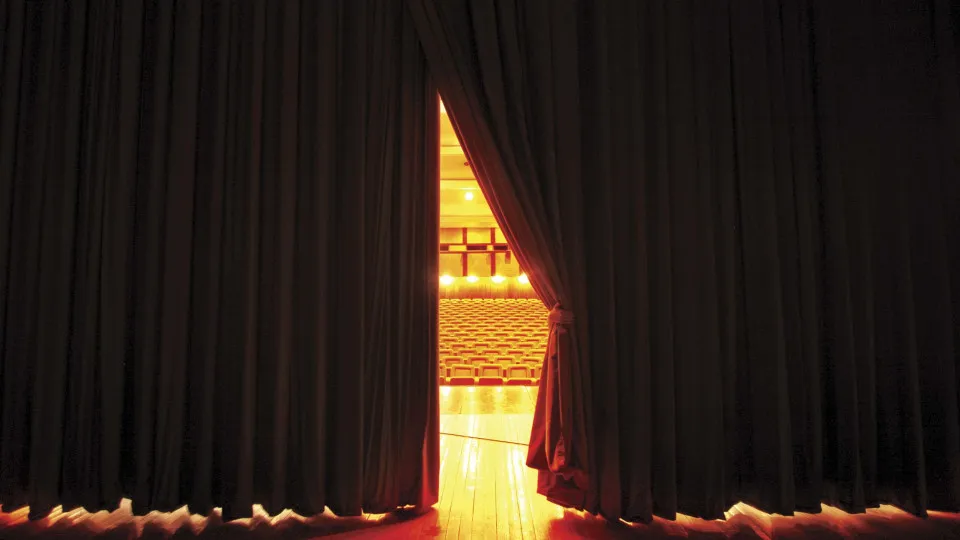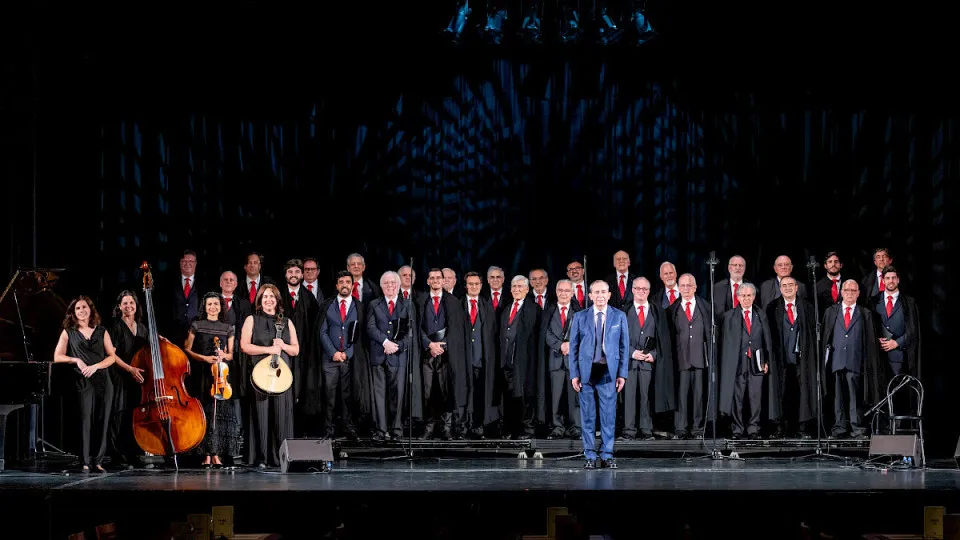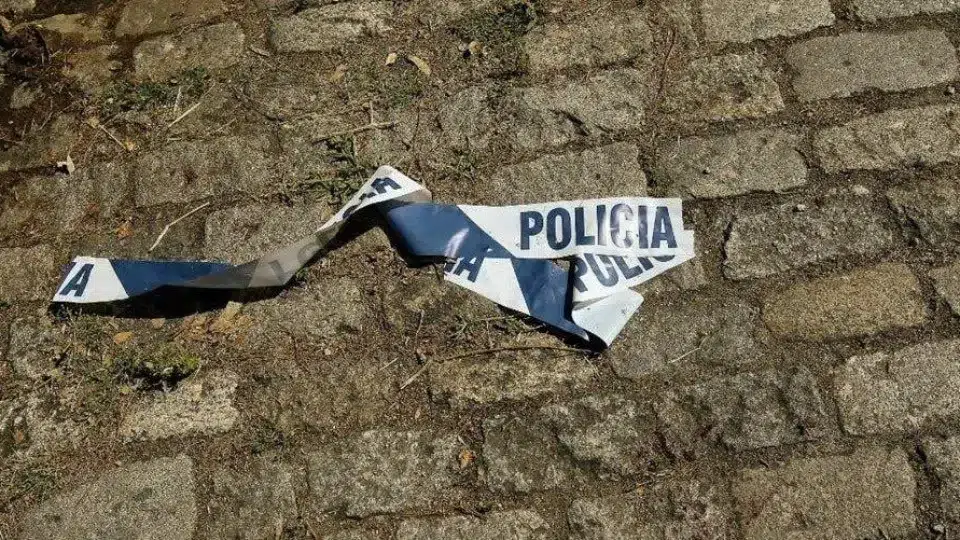
‘José Afonso live at the Coliseums, 1983′, directed by Gonçalo Amorim with dramaturgical coordination by Rui Pina Coelho, premieres on Friday at Rivoli in Porto, with a repeat on Saturday, and will have three more dates in December at Culturgest in Lisbon.
To fulfill a “very old desire” to explore the legacy of José Afonso (1929-1987), TEP invited four writers (Miguel Cardoso, Lígia Soares, Marta Figueiredo, and Susana Moreira Marques, in the order featured in the show), along with Pina Coelho, to create a text “for someone who might have attended that 1983 concert or might see it in 2025.”
“Essentially, we are seeking energy and strength from José Afonso for a confusing, difficult time with many defeats, some even of a civilizational nature, hence we request this night of asylum, this refuge from this great poet, singer, and composer, who marked our 20th century and should make us extraordinarily proud to revisit and listen to him,” stated the director and also TEP’s director to journalists after a press rehearsal.
Asked whether the current moment justified the show’s creation, Gonçalo Amorim noted that, paradoxically, the present might have dissuaded him from such “grand performances”: “It’s not just the ideas of the revolution that are threatened, it’s democracy itself. The revolution allowed us to live in democracy; it’s not only the symbolic component of the revolution under threat but the very democratic foundations, many constructed post-revolution.”
‘José Afonso live at the Coliseums, 1983’ replicates that 1983 moment, largely based on songs by the musician of ‘Venham Mais Cinco’, performed on stage by Mariana Leite Soares, who also leads the musical direction with Pedro João.
The show features the voice of José Afonso, with lines he spoke on stage in 1983, during his battle with amyotrophic lateral sclerosis, which led to his death four years later.
“There is a sad, evocative tone, sometimes a bit angry, sometimes a bit confusing too, desperate, but also much teeth-gritting, much collective embracing, much camaraderie,” said Gonçalo Amorim, emphasizing throughout the journalist conversation the importance and consensuality of José Afonso for Portuguese culture, as well as his generosity and camaraderie, visible in his concerts.
The director highlights José Afonso’s generosity, who performed at the coliseums also as a farewell: “These are magical moments, moments of gathering, of enormous camaraderie; people who attended knew Portugal was transforming into something different, and by bidding farewell to their singer, they were also saying goodbye to the revolutionary period.”
In the prologue, where José Afonso expresses insecurity about “singing this entire song” (something he mentioned before ‘Natal dos Simples’), there’s an interruption at the announcement of ‘Grândola, Vila Morena’, which was the concert’s last song: “As usual, we will sing that very recent new song called ‘Grând…'”.
Gonçalo Amorim explains the interruption with “this current difficulty of singing ‘Grândola’ loud and clear.”
“We know it’s a tough time to sing it; our revolution is under attack, there’s an evident revivalism of the dictatorship, visible daily in public discourse, so it’s not easy to sing ‘Grândola, Vila Morena’ loud and clear, and that prologue serves to convey we aren’t fools, we know what’s happening,” he stated.
In the 1983 concert, José Afonso said: “As usual, we will sing that very recent new song called ‘Grândola, Vila Morena’. By the way, anyone who wishes, I don’t know if it’s usually classic, I don’t know if it’s allowed, if it’s not allowed, anyone wanting to come up here and sing with us, to give a feel…”.
The blending of stage and audience is marked in the performance with actors among the audience, from where texts by the invited writers are read.
The show had the family’s involvement, with Zélia Afonso reportedly saying, according to Gonçalo Amorim, that she “wanted Zeca’s work to be used with modern relevance, not life stories or personal stories.”
“We wouldn’t want an image of a consensual and innocuous Zeca to remain. Zeca’s artistic quality has a strong political commitment behind it. He often said ‘we’ll get to the little songs, but let’s talk a bit first,'” the director shared.
The performance includes songs sung at the coliseums like ‘Vampiros’ and ‘Um Homem Novo Veio da Mata’, during which the phrase ‘E a Palestina às escuras!’ is projected.
‘José Afonso live at the Coliseums, 1983’ features performances by Catarina Chora, Catarina Carvalho Gomes, Inês Salvado, and Hugo Inácio, with the band consisting of Mariana Leite Soares, Pedro João, Josué, Saulo Giovannini, and Teresa Costa.
The scenography is by Catarina Barros, costumes by Cátia Barros, with lighting design by Nuno Meira and sound by Mariana Leite Soares.
The show is a co-production of TEP with Teatro Municipal do Porto, Culturgest, Centro Dramático Galego, and Cineteatro Louletano.




